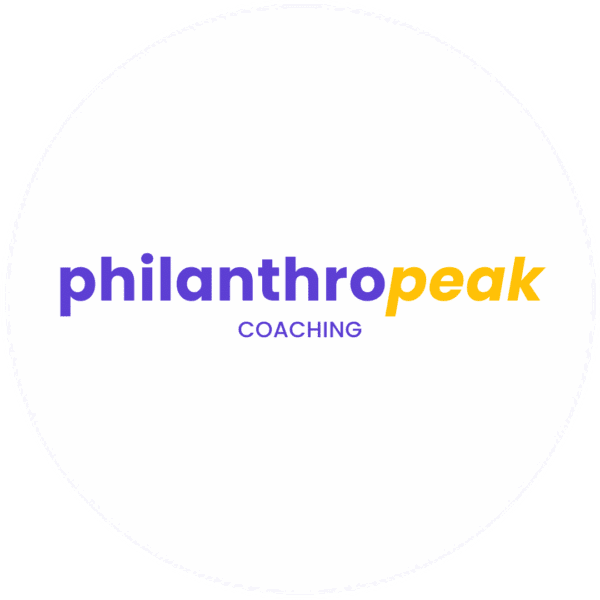
Exploring The Connection Between ADHD and Innovation in Business: Harnessing Unique Perspectives for Success
In the world of business, innovation is crucial for success, and Attention Deficit Hyperactivity Disorder (ADHD) can play a significant role in fostering that creativity. Many entrepreneurs with ADHD possess unique traits that can lead to groundbreaking ideas and innovative solutions. This article explores the connection between ADHD and innovation in business, highlighting how these distinct characteristics can be harnessed for success.
Key Takeaways
Table of Contents
Toggle- ADHD can enhance creativity and lead to original ideas in business.
- Hyperfocus allows individuals with ADHD to work intensely on projects, resulting in outstanding outcomes.
- Risk-taking tendencies can lead to innovative decisions that differentiate businesses.
- Supportive environments are essential for ADHD entrepreneurs to flourish.
- Embracing neurodiversity can improve team dynamics and drive overall growth.
Understanding ADHD and Its Impact on Business Innovation

Defining ADHD in the Business Context
ADHD, or Attention Deficit Hyperactivity Disorder, is often viewed as a challenge. However, it can also be a unique asset in the business world. Many entrepreneurs with ADHD think differently, which can lead to innovative ideas and solutions. Understanding how ADHD affects business can help in harnessing its strengths.
Common Traits of Entrepreneurs with ADHD
Entrepreneurs with ADHD often share certain traits that can be beneficial in business:
- Creativity: They tend to think outside the box.
- Enthusiasm: Their passion can inspire others.
- High energy: This can drive productivity and motivation.
Challenges and Opportunities Presented by ADHD
While ADHD can present challenges, it also offers opportunities:
- Distractibility can lead to difficulty focusing on tasks, but it can also foster creativity.
- Rapid decision-making can be a double-edged sword; it can lead to quick solutions but also impulsive choices.
- The need for structure can encourage the development of effective systems and processes.
Entrepreneurs with ADHD can turn their unique traits into strengths by understanding and managing their challenges effectively.
In summary, recognising the impact of ADHD on entrepreneurship is crucial. By embracing both the challenges and opportunities, individuals can leverage their unique strengths for success in the business world.
The Creative Edge: How ADHD Fuels Innovation

Unleashing Creativity and Unconventional Ideas
Individuals with ADHD often possess a remarkable ability to think outside the box. This creative mindset allows them to generate unique ideas that can lead to innovative solutions. By embracing their natural inclination towards creativity, they can disrupt industries and uncover new opportunities for business growth. Harnessing these traits can transform challenges into remarkable achievements.
Hyperfocus: The ADHD Advantage
One of the most significant advantages of ADHD is the ability to hyperfocus. This means that when individuals with ADHD find something interesting, they can concentrate intensely on it for extended periods. This can lead to increased productivity and the development of groundbreaking ideas. Hyperfocus can be a powerful tool for entrepreneurs, enabling them to dive deep into projects and produce exceptional results.
Risk-Taking and Decision-Making Abilities
ADHD individuals often exhibit a higher tolerance for risk, which can be beneficial in business. Their willingness to take chances can lead to innovative ventures and unique business strategies. Here are some key points about their decision-making abilities:
- Creative problem-solving: They often think of unconventional solutions.
- Adaptability: They can quickly adjust to new situations and challenges.
- High energy levels: This can drive them to pursue multiple projects simultaneously.
Embracing the unique strengths of ADHD can lead to a culture of experimentation and innovation in the workplace. By recognising and leveraging these traits, businesses can unlock new potential and drive success.
In summary, the connection between ADHD and innovation is profound. By understanding and harnessing these unique traits, entrepreneurs can turn their challenges into opportunities for success.
Harnessing ADHD Traits for Business Success
Time Management Techniques for Entrepreneurs with ADHD
Managing time can be tricky for many entrepreneurs with ADHD. Here are some helpful strategies:
- Align your workday with your brain’s natural rhythms to boost productivity.
- Stick to strict routines to create a sense of structure in your day.
- Use tools like calendars and reminders to keep track of tasks and deadlines.
Building a Support Network
Creating a supportive environment is crucial for success. Consider these points:
- Foster a culture of authenticity where everyone feels comfortable being themselves.
- Encourage open communication to help team members express their needs and challenges.
- Implement flexible work arrangements to accommodate different working styles.
Embracing Neurodiversity in the Workplace
Recognising and leveraging the unique strengths of individuals with ADHD can transform challenges into advantages. Here are some key strengths:
- Creativity and innovation: Individuals with ADHD often think outside the box, generating unique ideas that set them apart in the business world.
- Hyperfocus: When passionate about a project, they can concentrate intensely, leading to exceptional results.
- Willingness to take risks: Entrepreneurs with ADHD are often more willing to take bold actions, which can lead to groundbreaking decisions.
Embracing your unique strengths and finding the right strategies can lead to greater success in business. Remember, it’s about working with your brain, not against it!
Case Studies: Successful Entrepreneurs with ADHD

From Diagnosis to CEO: Overcoming Challenges
Many entrepreneurs with ADHD have faced significant hurdles on their journey to success. For instance, Alex Partridge, the founder of social media giants Unilad and Ladbible, shared his experiences with ADHD, highlighting how he transformed challenges into opportunities. His story is a testament to the resilience and creativity that often accompany ADHD.
Breaking the Mould: Turning ADHD into a Business Advantage
Entrepreneurs like Soraya Daniels have shown that ADHD can be a powerful asset. Soraya found herself struggling during the pandemic but used her unique perspective to innovate and adapt her business strategies. This adaptability is a common trait among successful entrepreneurs with ADHD, allowing them to thrive in competitive environments.
The Hyper-Focused CEO: Driving Entrepreneurial Success
Research indicates a positive connection between ADHD and entrepreneurial success. Many entrepreneurs leverage their hyperfocus to drive their businesses forward. This ability to concentrate intensely on tasks can lead to remarkable achievements, as seen in the journeys of various ADHD entrepreneurs. They often attribute their success to their ability to take bold risks and pursue their passions with enthusiasm.
Embracing ADHD can lead to incredible achievements. Entrepreneurs with this condition often find that their differences set them apart in the business world.
Creating an Inclusive Environment for ADHD Innovation
Recognising and Leveraging ADHD Strengths
Creating an inclusive workplace is essential for fostering innovation. By integrating neurodiverse employees into teams, companies can benefit from unconventional ideas and solutions that drive innovation. Here are some key strategies:
- Open Communication: Encourage discussions about ADHD to reduce stigma and promote understanding.
- Flexible Work Arrangements: Adapt work environments to meet the unique needs of individuals with ADHD.
- Support Networks: Build a community that appreciates creativity and out-of-the-box thinking.
Flexible Work Arrangements and Accommodations
To truly embrace neurodiversity, businesses must implement flexible work arrangements. This can include:
- Adjusting work hours to suit individual productivity peaks.
- Providing quiet spaces for focused work.
- Allowing remote work options to reduce distractions.
Fostering a Culture of Experimentation
Encouraging a culture of experimentation can lead to greater creativity and innovation. Here are some ways to foster this culture:
- Celebrate unique perspectives during team meetings.
- Implement brainstorming sessions that welcome unconventional thinking.
- Recognise and reward innovative ideas, regardless of their source.
Embracing neurodiversity not only benefits individuals but also enhances overall team performance and creativity. By valuing different ways of thinking, businesses can unlock new potential and drive success.
In conclusion, creating an inclusive environment for individuals with ADHD is not just about acceptance; it’s about harnessing their unique strengths to drive business success. Companies that prioritise neurodiversity attract top talent and foster a culture of innovation, leading to a competitive edge in the market.
The Future of ADHD and Innovation in Business

Embracing Neurodiversity for Competitive Advantage
The future of business is increasingly recognising the value of neurodiversity. Companies that embrace diverse thinking can gain a significant edge over their competitors. By understanding and leveraging the unique strengths of individuals with ADHD, businesses can foster a culture of innovation that drives success.
The Role of ADHD in Shaping Business Trends
ADHD traits, such as creativity and risk-taking, are becoming more appreciated in the business world. As we move forward, it’s essential for companies to adapt to these changes and create environments where neurodivergent individuals can thrive. This shift not only benefits those with ADHD but also enhances overall team performance and creativity.
Unlocking Potential: Strategies for Future Growth
To harness the strengths of individuals with ADHD, businesses can implement several strategies:
- Training programmes to educate staff about ADHD and its benefits.
- Flexible work arrangements that cater to different needs and working styles.
- Open discussions about neurodiversity to foster understanding and acceptance.
Embracing neurodiversity not only benefits individuals with ADHD but also enhances overall team performance and creativity.
In conclusion, the future of business is leaning towards inclusivity, recognising that diverse thinking can lead to greater success. As we move forward, it is essential to harness the strengths of those with ADHD to create a more innovative and dynamic business environment.
As we look ahead, the intersection of ADHD and innovation in business presents exciting opportunities. If you’re a professional with ADHD, don’t let challenges hold you back. Visit our website to discover how our coaching can help you unlock your potential and thrive in your career!
Conclusion
In summary, the link between ADHD and innovation is a strong one that can greatly benefit businesses. People with ADHD have special qualities that, when used well, can lead to amazing ideas and new ways of thinking. By embracing their creativity, ability to focus intensely, and willingness to take risks, ADHD entrepreneurs can find their own paths to success. To do well in business, it is important for those with ADHD to use strategies for managing their time and building support networks. Creating workplaces that welcome different ways of thinking and provide the right support can help individuals with ADHD do their best work and help their businesses grow. By seeing ADHD as a strength and using its advantages, both entrepreneurs and companies can discover a treasure trove of new ideas, challenge the norm, and achieve great success. So, if you have ADHD, celebrate your unique skills, think creatively, and start your journey towards innovation and success in business.
Frequently Asked Questions
What is ADHD and how does it affect business?
ADHD stands for Attention Deficit Hyperactivity Disorder. It can influence how someone thinks and works, often leading to unique ideas and creativity in business.
Can people with ADHD be successful entrepreneurs?
Yes! Many successful entrepreneurs have ADHD. Their different way of thinking can help them come up with innovative solutions.
What are some common traits of entrepreneurs with ADHD?
Entrepreneurs with ADHD often show creativity, high energy, and a willingness to take risks, which can be beneficial in business.
How can ADHD traits be turned into business strengths?
By understanding their unique traits, individuals with ADHD can develop strategies for time management and building support networks to succeed.
What challenges do entrepreneurs with ADHD face?
They may struggle with staying focused or managing time, but these challenges can also lead to creative thinking and innovative ideas.
How can businesses support employees with ADHD?
Creating an inclusive environment that values diverse thinking and offers flexible work arrangements can help employees with ADHD thrive.





